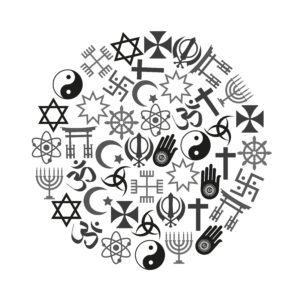Of late, religion has been taking a beating by the American public for some of its positions on social issues.
For example, I was stunned by my own religion’s (LDS) stand on support of Proposition 8, amending California’s Constitution to forbid gay marriages. It was a mind boggler for me.
Equally stunning was my religion’s webpage article a couple of weeks ago saying its ban on blacks to the priesthood was a “racist” activity, not a product of revelation or doctrine. “Finally” I thought, “but where’s the apology to those who suffered under such a practice?”
Anyway, there has been plenty of well deserved criticism my religion has received because of these stands. It’s not alone, however. Catholicism has taken severe heat on issues of aberrant behavior of priests, obsessive denouncement of homosexuality, etc. Evangelical Christianity too has seen its share of criticism for its stands on traditional marriage, abortion, etc.
But, having said that, there are simple truths to remember when reconciling conflicts between your opinions and your religion’s public positions. Here are three:
1. You can come and go as you please.
Religion does not have the power to stop you from leaving if you choose. There is no legal requirement to be a member of a religion in America. You can come and go as you please. You are not stuck in a religion. If you believe you are, the problem shifts from your religion to you. Your religion might say you will go to hell if you don’t attend, but most all religions say that. Plus, I don’t think mainline religions have used that tactic anymore. It hasn’t worked.
2. You are not required to financially support a religion.
As in some European countries, you are not required to give over money to any religion in America. If you do, it’s a personal decision. Give a lot, give a little, or give nothing at all. That’s your business, no one else’s. At a minimum, religions have to earn your financial support in America.
3. You can speak your mind.
America has always had freedom of speech, but never has it had such mass appeal as now with the Internet. You can speak your mind, and if you choose not to identify yourself as you do it, so be it. People have a lot to say about their religions. They should and they do. Such is not the case in many religiously fundamentalist countries around the world. Where people can’t speak their mind, especially about their religion, their communities become defensive and vulnerable.
These three little truths seem so obvious, but the obvious is not always apparent, when you are struggling to reconcile your own personal beliefs to opposing ones of your religion on subjects of social justice.
